Gasoline Bulk Plants
Background and Emissions:
- Air pollutants from bulk plants result from the displacement of gasoline vapors from tank trucks and storage tanks as they are filled.
Specific Regulations:
- LAC 33:III.2133 requires bulk plants to have a vapor balance system between the gasoline storage tank and both the incoming and outgoing gasoline tank trucks. The balance system is designed to capture vapors displaced while filling of either the tank or the truck. Exemptions from the vapor balance system are available for certain facilities that meet the tank size/throughput requirements. Smaller systems are required to use submerged fill pipes to control VOC emissions. An air permit or exemption should be applied for.
- As well as the air rules, facilities may also have to comply with water quality regulations such as stormwater permitting, preparation of a stormwater pollution prevention program and a SPCC plan.
- Other state rules require TIER II reporting.
Other Potentially Relevant Regulations:
Testing Requirements:
- When a vapor balance system is required, the vapor balance system and each loading rack must be inspected for liquid or vapor leaks monthly. Leak must be repaired within 15 calendar days after detection.
- Stormwater permits require regular testing of discharge waters.
Recordkeeping and Reporting Requirements:
- LAC 33:III.2133 requires that the following records be kept for at least five years:Purchase and sales receipts including delivery dates, quantities, and comments
- Equipment operation schedules and maintenance records
- Data to document self-monitoring
- Records of visual inspections and odor testing
- When the vapor collection equipment was inspected and whether it passed the requirements
- Other reports may be required by the air permit
- Stormwater recordkeeping and reporting is according to the permit.
Important Dates:
- There are no important dates for the bulk plants.
Housekeeping Suggestions:
- Self-inspections are required by LAC 33:III.2133. The purpose of daily self-inspection is to aid the owner in detecting leaks and equipment malfunctions, and to reduce emissions by keeping equipment operating properly. They are helpful to the owner in that they can (1) Save the owner money - Detection/repair of equipment failure helps to avoid penalties; and (2) Improve customer satisfaction - Properly functioning equipment is easier to use.
Pollution Prevention Suggestions:
- TRAIN EMPLOYEES AND DRIVERS TO USE EQUIPMENT PROPERLY
 LOUISIANA DEPARTMENT OF ENVIRONMENTAL QUALITY | Secretary Aurelia S. Giacometto
LOUISIANA DEPARTMENT OF ENVIRONMENTAL QUALITY | Secretary Aurelia S. Giacometto
 A DEPARTMENT OF THE STATE OF LOUISIANA
A DEPARTMENT OF THE STATE OF LOUISIANA